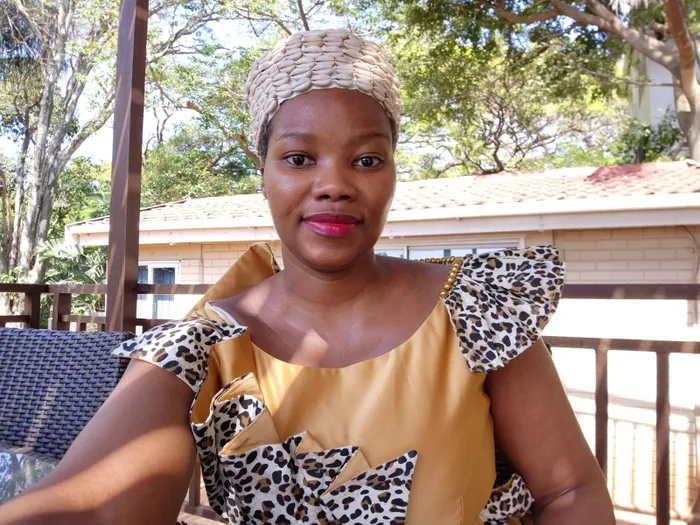Reviving traditional healing: a call for regulation and recognition in South Africa

Makhosi Nombuso Dube-Myeni is a spiritual coach, spiritual healer, medium and traditional health practitioner based in KwaZulu-Natal.
Image: Supplied
Traditional healers are integral to the lives of many of us in Mzansi. They are custodians of cultural heritage, spiritual insight, and holistic wellness. Their sacred discipline is a living tradition that, if not preserved and protected, will be erased.
We’re already seeing that without governance, it will leave communities vulnerable to exploitation by the unscrupulous and destroy itself. The Eastern Cape recorded 29 initiate deaths at illegal initiation schools this year, with 2 penile amputations and 147 hospitalisations.
According to the Department of Corporate Governance and Traditional Affairs (COGTA), there have been 371 initiation deaths reported between 2016 and 2024, with 110 recorded amputations. The absence of a governing body leaves both patients and genuine healers exposed to misconduct.
Exploitation can occur on multiple levels - patients may be preyed upon by fraudulent healers, while authentic practitioners face discrimination and marginalisation.
The first step in this process was surely The Witchcraft Suppression Act of 1957, which placed broad legislation over divination and other traditional healing methods. For decades, traditional healers were prohibited from engaging in practices that connected them to their ancestors, eroding the essence of their work.
While South Africa made strides toward integrating traditional healing into its formal health system - most notably through the Traditional Health Practitioners Act of 2007 - the time has come to reframe the conversation and redraft regulations and policies that give validation to this centuries-old knowledge system.
The need is evident as horrific cases make headlines, while spiritual interventions that are successful fly under the radar due to stigmas that prevent people from sharing their experiences.
In the meantime, initiates, gifted children who receive a calling, are bullied at school for their seemingly ‘strange behaviour’. Those battling with ancestral turmoil that is crippling cannot fully explain or justify to their employer why they are ‘unwell’.
Traditional healing must be better understood, regulated, and brought into the fold. Currently, traditional medicine is housed within institutions that prioritise scientific benchmarking. It’s often incompatible. Traditional healing relies on natural remedies, herbal medicine, divination, and cleansing ceremonies—methods tailored to each individual’s condition and spiritual context. These practices enable holistic healing that transcends biomedical models.
The establishment of the Traditional Health Practitioners Council of South Africa (THPCSA) was a landmark moment, yet funding constraints and ongoing debates about regulation have hampered progress. It does, however, need to be fully implemented: ensuring all practitioners are registered, accountable, and supported by clear guidelines for ethical practice, patient safety, and disciplinary procedures.
There is a compelling case to reposition Traditional Health Practitioners under a department that embraces cultural heritage, such as COGTA, with the inclusion of traditional healers as leaders and decision-makers.
To truly honour South Africa's commitment to multiculturalism and equality, the country must establish a robust framework that integrates traditional healers into both healthcare and legal systems. For example, a two-way referral system and shared patient care protocols to ensure continuity and respect across disciplines.
Reviving the conversation around traditional medicine policy is critical. The Interim Traditional Health Practitioners Council of South Africa must lead efforts to amend the Traditional Health Practitioners Act of 2007, ensuring it reflects the realities of traditional healing today.
Endorsing traditional healing is not merely about validation—it’s about protection, progress, and respect. It safeguards vulnerable communities, preserves the integrity of sacred practices, and strengthens the cultural fabric of South Africa.
At present, there is limited documentation of the great healers in South African history, and traditional medicine is rarely taught in formal education systems. This lack of historical visibility deprives younger generations of valuable insight and cultural pride. Without written records or scientific studies, advocating for the inclusion of traditional healing in mainstream health discourse becomes increasingly difficult.
By embracing this vision, we can foster a more inclusive, resilient, and culturally grounded future, honouring the invaluable contributions of traditional healers to the nation's health landscape.
*The opinions expressed in this article does not necessarily reflect the views of the newspaper.
DAILY NEWS
Related Topics: